
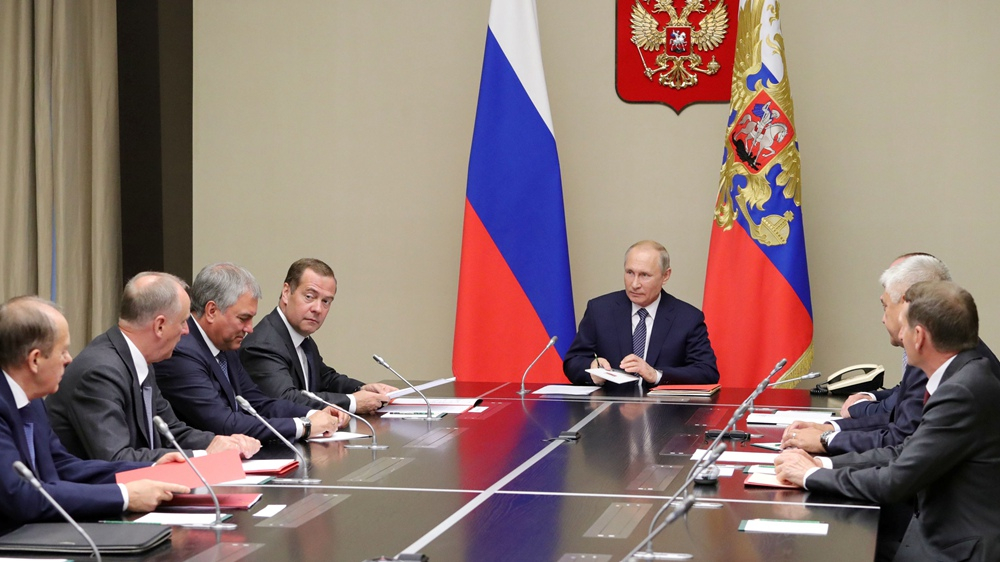
Russian President Vladimir Putin (C) and Prime Minister Dmitry Medvedev (L4) attend a meeting with members of Russia's Security Council at the Novo-Ogaryovo state residence outside Moscow, August 5, 2019. /Reuters Photo
Russian President Vladimir Putin on Monday said his country would be "forced" to develop new missiles if the United States does the same, following the dismantling of the Intermediate-Range Nuclear Forces (INF) Treaty at the U.S. initiative.
"Russia will be forced to begin the full-scale development of similar missiles" if it receives information the U.S. has completed new systems, the president said in a statement, urging Washington to begin new arms talks.
"In order to avoid chaos that has no rules, limits and laws, one needs to once again weigh all possible dangerous consequences and start serious dialogue without any ambiguities," he said. "We are ready for it."
Read more:
China's envoy has doubts about joining U.S. and Russia in a nuclear deal
The collapse of INF Treaty will increase global security risks
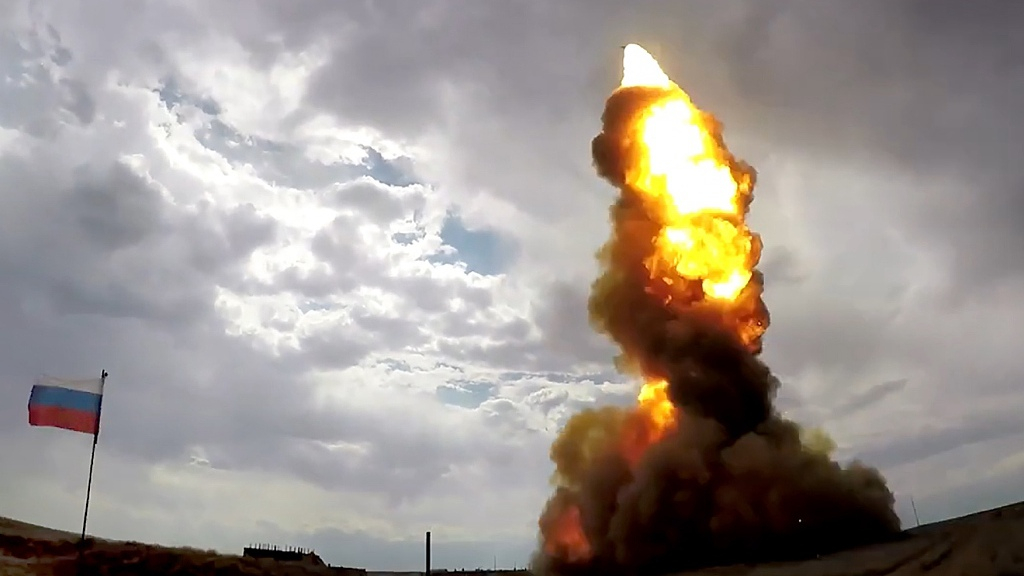
Deputy FM: Russia would respond to U.S. missile deployments in Asia
Earlier on Monday, Deputy Foreign Minister Sergei Ryabkov said Russian would take measures to defend itself if the U.S. stations missiles in Asia.
"Amid the new threats generated by the United States, we of course will take comprehensive measures to ensure our own security," Ryabkov said at a news briefing.
Ryabkov made the remarks after U.S. Defense Secretary Mark Esper said on Saturday that he was in favor of placing ground-launched, intermediate-range missiles in Asia relatively soon.
Asked about the possible U.S. missile deployment, Ryabkov said Russia did not plan to get sucked into an arms race with Washington, but that it would respond defensively to any threats.
"... If the deployment of new U.S. systems begins specifically in Asia then the corresponding steps to balance these actions will be taken by us in the direction of parrying these threats," he stressed.
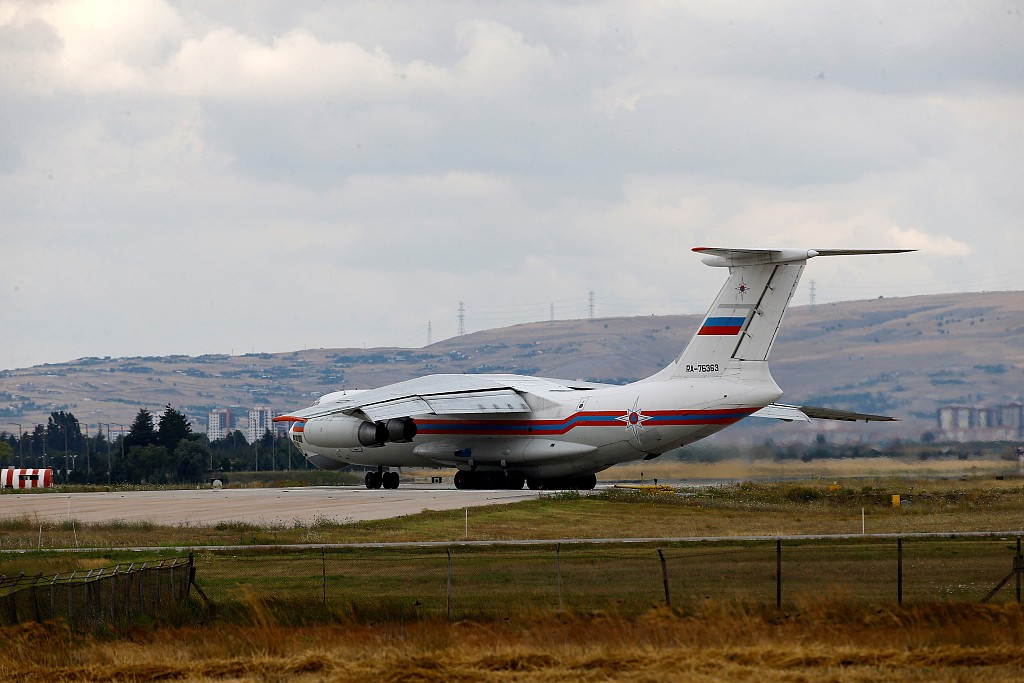
The eighth Russian cargo aircraft carrying components of the S-400 Long Range Air and Missile Defense Systems takes off from Murted Air Base after delivery of the components in Ankara, Turkey, July 15, 2019. /VCG Photo
The Russian diplomat said Moscow expects Tokyo to soon station the U.S. MK-41 missile-launching system in Japan.
"The universal MK-41 launch system that will appear, it seems, in Japan can also be adapted to be used to launch medium-range cruise missiles ... So these new systems when they appear in Japan will without doubt also be taken into account during our corresponding planning," he said.
Australian Prime Minister Scott Morrison said on Monday that U.S. intermediate-range missiles will not be deployed in his country. Meanwhile, the South Korean Defense Ministry said Seoul "made no official discussion with the U.S. side about the introduction of intermediate-range missiles, nor did it review internally or plan to do so."
Ryabkov urged Washington to show responsibility and follow the example of Russia to abandon the deployment of medium- and shorter-range missiles, which the Pentagon has talked about.
He said Russia will not deploy medium- and shorter-range ground-based missiles in Europe or in other regions until U.S. weapons of these kinds appear there.
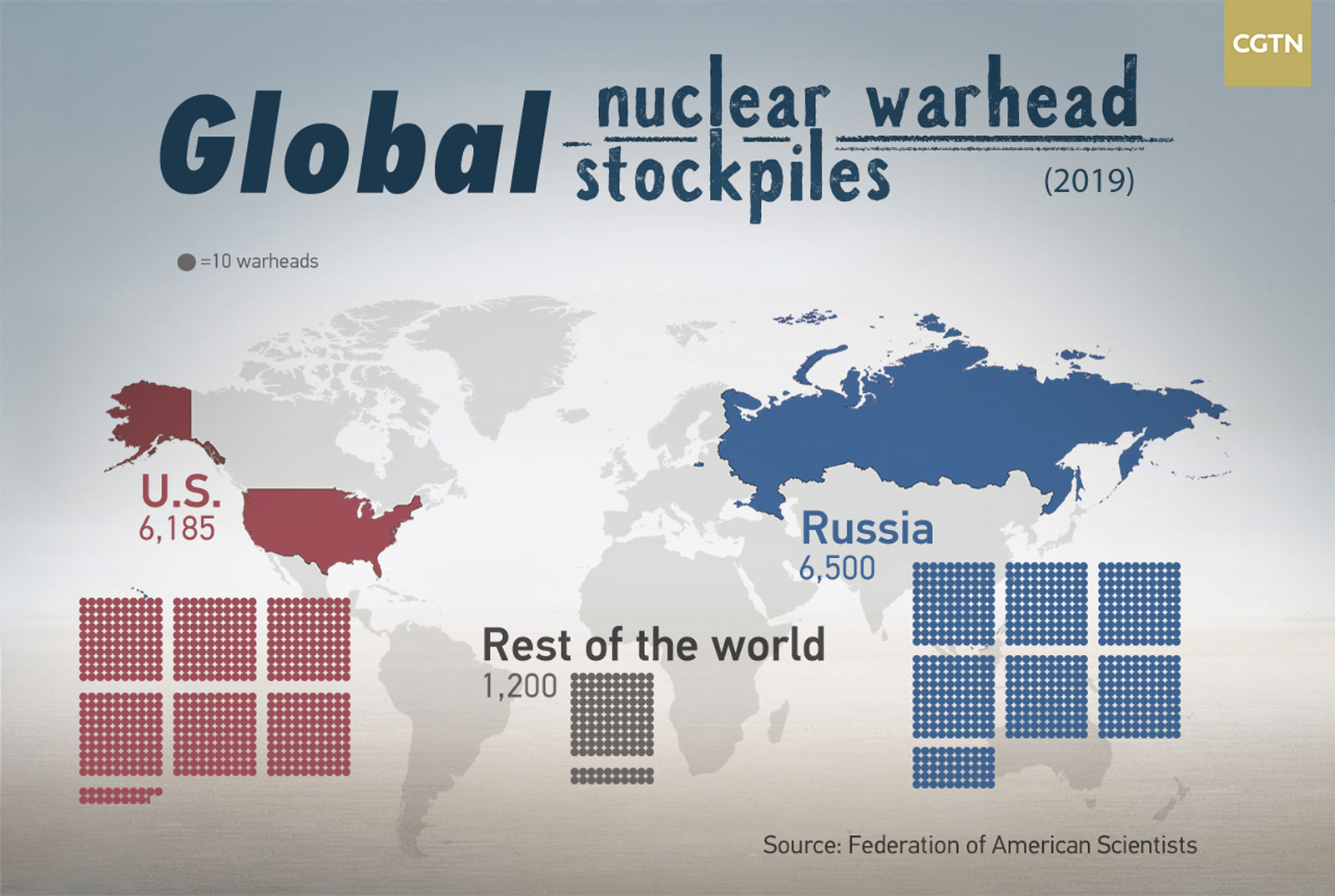
Russia calls for avoiding further blow to arms control system
Ryabkov said Russia is still open to equal and constructive dialogue with the United States on the INF Treaty and other strategic stability issues based on mutual respect and mutual consideration of interests.
The consultation process between Russia and the United States on arms control issues with an emphasis on their nuclear missile components, which resumed on July 17 in Geneva, should be continued, Ryabkov said.
Read more:
Graphics: The history of U.S.-Russia nuclear arms control deals and what's next
Will the New Start Treaty follow the INF's destiny?
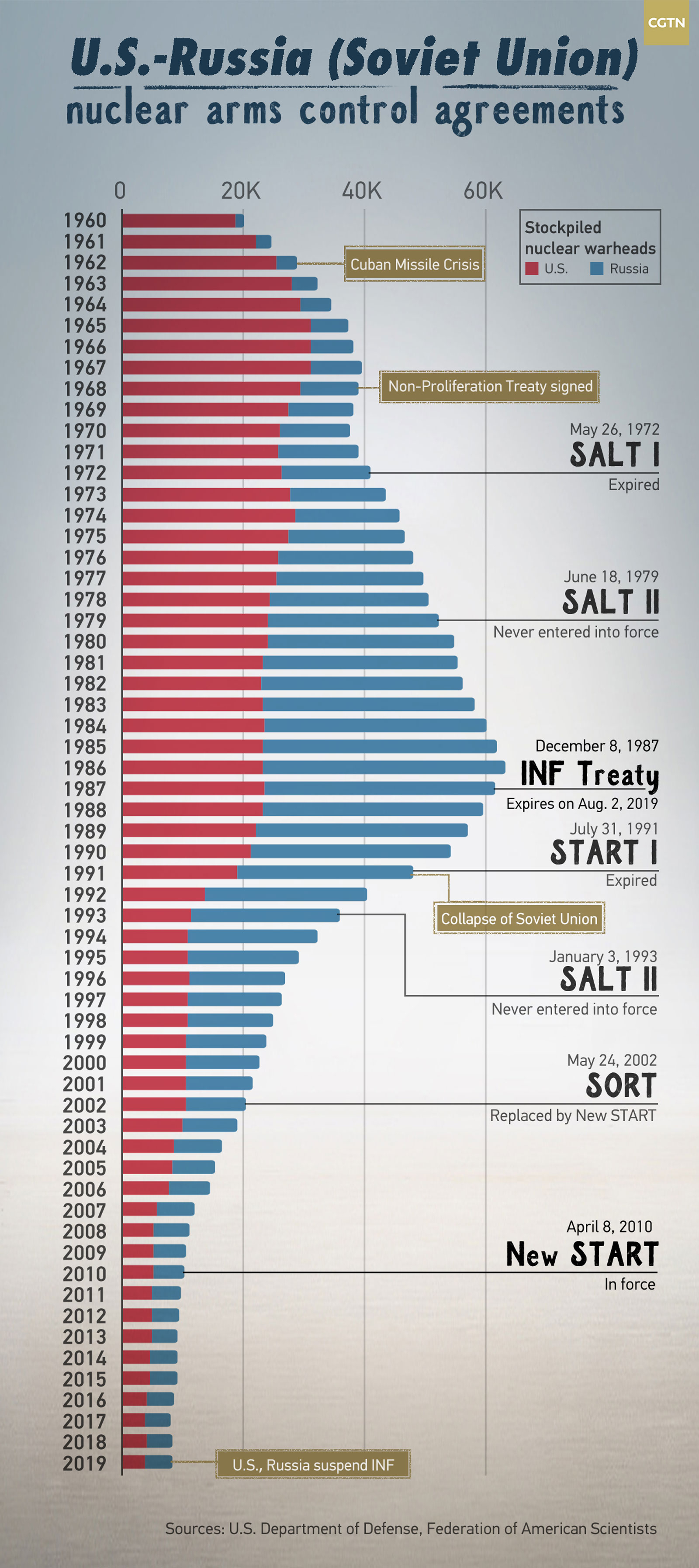
Russia and the U.S. on Friday formally withdrew from the INF Treaty after accusing each other of violating the landmark arms control deal.
The treaty was signed in 1987 between the former Soviet Union and the United States on the elimination of ground-based medium- and shorter-range missiles.
Russia and the United States should now concentrate on preserving what remains of the international arms control architecture, primarily the New Strategic Arms Reduction Treaty, Ryabkov said.
If this agreement is not extended beyond February 5, 2021, it would be an even more severe blow to the international security system when it expires, he warned.
(With input from agencies)

Copyright © 2018 CGTN. Beijing ICP prepared NO.16065310-3
Copyright © 2018 CGTN. Beijing ICP prepared NO.16065310-3